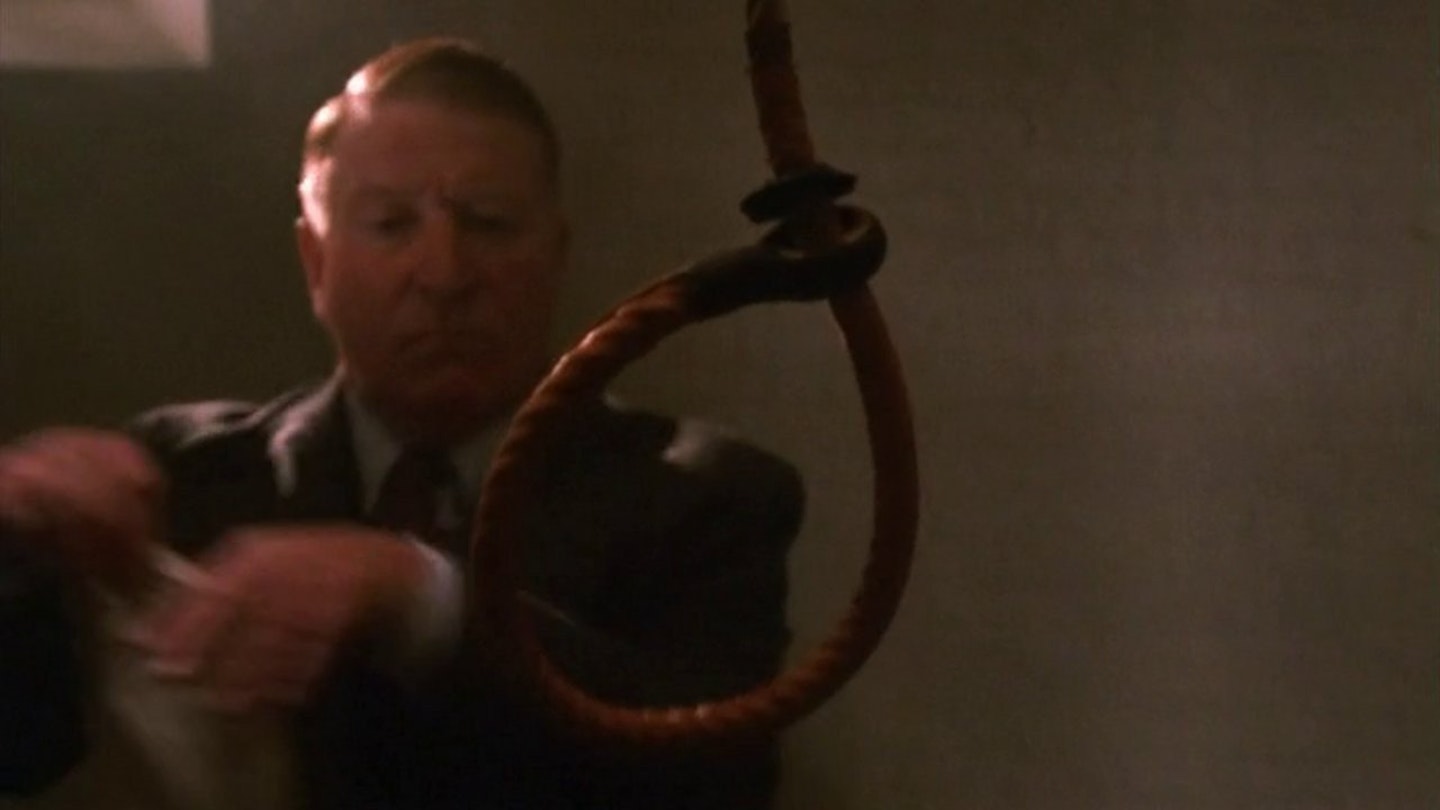Based on William Bentley's book My Son's Execution, the film spans a decade from the time the young Derek Bentley sustains his head injury to the first of several enforced holidays at Her Majesty's Pleasure, to the time he finally quits reform school for a reclusive life with the folks at home, suffering a severe case of sociophobia which sees him locked in his room for over a year with only endless packets of snouts and a pet turtle for company.
Subtly portrayed, Derek Bentley's desperately pathetic need for peer approval and his increasing willingness to commit crime in order to get it until, that is, murder and the death sentence put a stop to the whole sorry business.
Unsurprisingly, given the source material, Medak's film is almost naively sympathetic toward Derek Bentley (a moving film debut for Eccleston, in an Iain Glen School for Tortured Actors kind of way) who was, after all, caught at the scene of the murder carrying a six inch knife and wearing a knuckleduster fit to fell an elephant. Cosy scenes with Derek at the family hearth - five stars to the art and lighting departments here for the lovingly crafted and richly lit period interiors - serve to reinforce the image as well as to heighten the sense of an omnipresent, lurking menace embodied by Craig and co., while sterling support from the beleaguered Family Bentley, particularly Tom Courtenay as William Bentley, adds pathos by the bucketload.
The film offers little enlightenment but does, at the very least, deservedly reopen an otherwise forgotten chapter in British legal history. As Derek Bentley himself wrote in his final letter home prior to execution: "I tell you what Mum, the truth of this story has got to come out one day and that one day a lot of people are going to get into trouble." Amen to that.
